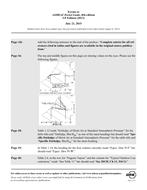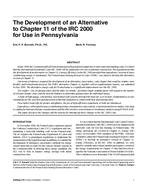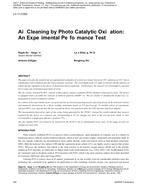In the design of regenerative exchangers, the number of transfer units, Ntu, is directly proportional to the surface area and inversely proportional to the mass flow rate; it is usually regarded as constant for applications with specified operating conditions. The effectiveness–Ntu method of design is the preferable design method in HVAC applications because the outlet flow properties are readily predicted once the inlet properties are known. This study is intended to show that the effective Ntu decreases when manufacturing tolerances in the flow channels are considered for regenerative exchangers. The analysis shows that the effective Ntu decreases when tolerances in the manufacturing process cause a significant random variation in flow channel sizes, which is characterized by the ratio of flow channel standard deviation to mean hydraulic diameter (s/D0). Graphical results are presented to show quantitatively how manufacturing tolerances decrease the effective value of Ntu for regenerative exchangers. Four rotary regenerative exchangers measured show that the ratio of Ntu effective value and design value, Ntu/Ntu0, ranges between 0.57 and 0.94 for typical operating conditions.
Units: SI
Citation: ASHRAE Transactions, vol. 112, pt. 1
Product Details
- Published:
- 2006
- Number of Pages:
- 12
- File Size:
- 1 file , 4.1 MB
- Product Code(s):
- D-28006


